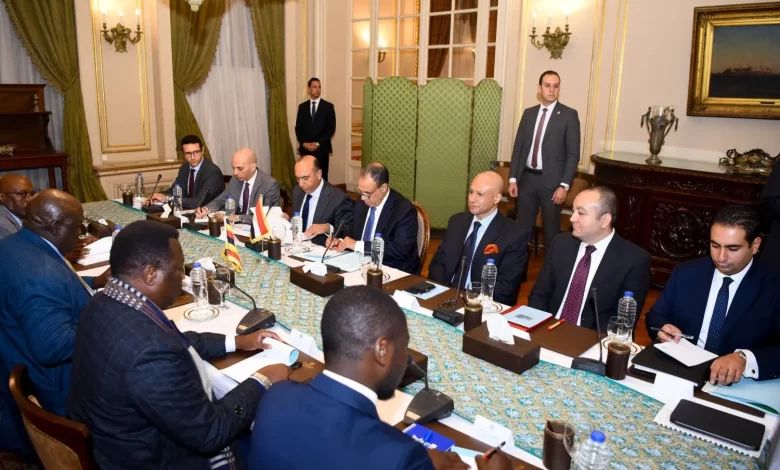Reports
Egypt and Uganda Agree on “Consultation and Non-Harm” Regarding Nile Water Issues

Egypt and Uganda have reached a consensus on the “need for governance of transboundary cooperation on the Nile River in accordance with international law principles, particularly prior notification, consultation, consensus, and non-harm, as per established international obligations and practices.”
Discussions held in Cairo on Wednesday between Egypt’s Minister of Foreign Affairs and Migration, Badr Abdel Aty, and Uganda’s Minister of International Relations, Henry Okello Oryem, focused on water security and the Nile River. They highlighted that Egypt “has always supported development projects in Nile Basin countries, including Uganda, such as the Owen Falls Dam.”
The Egyptian Minister recently visited Uganda in late October, meeting with President Yoweri Museveni and other officials to discuss “water cooperation with Nile Basin countries.” During his visit, he emphasized that Egypt’s water security is “a matter of existence” and reiterated Egypt’s rejection of unilateral measures concerning international rivers.
The Ugandan Minister of International Relations is visiting Cairo for the second round of political consultations between the two nations, aimed at enhancing bilateral cooperation and addressing shared concerns.
According to an official statement by the spokesperson for Egypt’s Ministry of Foreign Affairs and Migration, Tameem Khalaf, Minister Abdel Aty emphasized the “deep historical ties between Egypt and Uganda, based on fraternal bonds and mutual interests in various fields.” He stressed the importance of “boosting economic cooperation, development, trade, and investment to serve the interests of both peoples.”
Abdel Aty highlighted the extensive activity of Egyptian companies in Africa, particularly in construction, energy, and other sectors. He called for updating and activating mechanisms for joint cooperation to elevate relations to a strategic partnership level.
The discussions also addressed regional issues, including the Great Lakes Region, Lake Chad Basin, Sahel, and the Horn of Africa. Both sides stressed the need for continued efforts to “combat terrorism” through a comprehensive strategy that addresses the security, developmental, and ideological dimensions of terrorism. Egypt also pledged to support Uganda by training local imams through Al-Azhar and working towards eliminating organized crime, which threatens African communities.
Egypt, which suffers a 55% water deficit, relies on the Nile for 98% of its water resources, amounting to 55.5 billion cubic meters annually. The country is currently below the global water poverty line, with 500 cubic meters per capita annually, according to Egypt’s Ministry of Water Resources.
Additionally, Abdel Aty and Oryem discussed coordinating efforts to reform and develop the African Union and fostering cooperation among African and Global South countries to tackle pressing challenges in peace, security, and sustainable development. Both parties agreed to “exchange support for nominations in regional and international forums.”
The Egyptian Minister also emphasized the importance of strengthening trade and investment ties, aiming to elevate trade volumes to new heights, reflecting the strong political relations between the two countries.
During a joint press conference with Oryem, Abdel Aty announced plans to launch a joint business council between Egypt and Uganda to further promote bilateral relations. He also briefed the Ugandan Minister on existing mechanisms to enhance cooperation with Uganda and the Nile Basin region, mentioning a special mechanism to fund development projects in the southern Nile Basin countries with a budget of approximately $100 million allocated from Egypt’s treasury (1 USD equals 49.8 Egyptian pounds in local banks).
He further highlighted another mechanism: the Egyptian Agency for Export Guarantees and Investment in the Nile Basin region, with capital exceeding $600 million. The southern Nile Basin countries include “Burundi, Congo, Kenya, Rwanda, South Sudan, Tanzania, and Uganda,” which are considered “source” countries for the river. Alongside the eastern Nile countries—”Ethiopia, Sudan, Egypt, and Eritrea”—they form the Nile Basin region.



